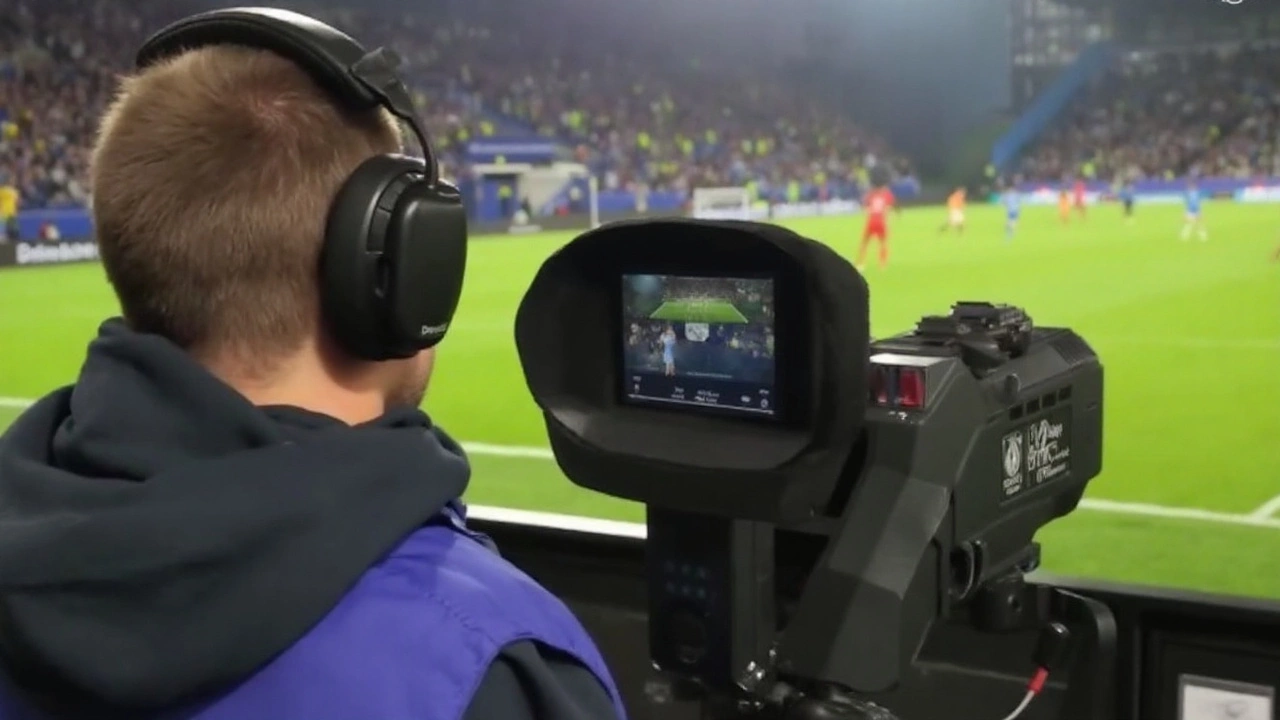A giant goes dark on the eve of football season
One day before the NFL’s 2025 regular season kicked off, the internet’s most visible sports piracy site blinked out. On August 24, 2025, Streameast was taken offline after a yearlong investigation coordinated by the Alliance for Creativity and Entertainment (ACE) and Egyptian authorities. Dozens of domains that once hosted free sports streams now send visitors to a page promoting licensed options. The Streameast shutdown wasn’t a routine takedown; it capped a sweeping operation that touched multiple countries and agencies.
For the past year, Streameast ran through a network of about 80 associated domains. In that time it drew roughly 1.6 billion visits—an average of around 136 million a month. Traffic was concentrated in the United States, Canada, the United Kingdom, the Philippines, and Germany. That reach gave the site outsized influence on game days, when spikes in search and social traffic often drove thousands to mirror domains within minutes.
What was on offer? Streams of major leagues and tentpole events—NFL, NBA, MLB, the Premier League and Champions League in Europe, Formula 1, pay-per-view boxing, and MMA cards. To rights holders and broadcasters, that’s not just a nuisance; it’s direct erosion of subscription and advertising revenue tied to exclusive rights deals that cost billions globally.
ACE, a coalition backed by Hollywood studios and major media companies, led the probe with help from Europol, the U.S. Department of Justice, the Office of the U.S. Trade Representative, and the National Intellectual Property Rights Coordination Center. The result: raids near Cairo, the arrest of two suspects on copyright infringement allegations, and the seizure of laptops, smartphones, cash, and several credit cards. Investigators say they found a shell company used to wash advertising revenue—about $6.2 million—plus around $200,000 held in cryptocurrency.
Authorities also pointed to property purchases in Egypt tied to money from the operation. That detail matters because it signals the investigation reached beyond takedown notices and domain seizures to follow funds into real assets. For prosecutors, paper trails and property records can turn a piracy case into a money laundering case, which often carries stiffer penalties.

Inside the takedown—and the cat-and-mouse to come
On the technical front, operations like this tend to blend legal pressure and infrastructure disruption. Rights holders push registrars, hosting providers, and content delivery networks to comply with notices and court orders. Domains get suspended. Traffic is steered to legal pages. In this case, ACE says all domains tied to the network redirect to a page listing authorized streaming providers. That redirection is a signal to users and a way to drain the long-tail of search traffic that would otherwise get recycled into new mirrors.
Streameast didn’t run on subscriptions. Its main fuel was advertising. The model is simple: game-day spikes in traffic drive ad impressions. Some of that ad spend comes from gray-market intermediaries that look the other way. The Cairo raids suggest a step further—advertising profits passing through a shell company before landing in bank accounts and crypto wallets. Pair that with seized devices and you get a picture of control over the operation, not just incidental hosting.
The timing here wasn’t accidental. Announcing the takedown right before the NFL season sends a message. For years, major sports leagues have treated the first weeks of their seasons—and big fight nights—as piracy pressure points. A high-profile seizure just before kickoff tells casual viewers there may not be an easy free stream waiting this time.
Charles Rivkin, who chairs ACE and leads the Motion Picture Association, called the action a landmark. The language is familiar, but the scale backs it up. Few piracy hubs reach hundreds of millions of visits monthly. In sports, where value is concentrated in live rights, even brief interruptions in illegal streams can push on-the-fence viewers back toward licensed services.
Still, history says the story doesn’t end here. Popular piracy sites rarely vanish without successors. Operators often fragment, spawning new domains or shifting to closed channels on messaging apps. Others pivot to IPTV services that sell bundles of illicit channels behind invite-only communities. Even if Streameast’s core team is out, playbooks, code, and contacts tend to circulate.
For users, the immediate change is friction. Searches that used to land on a stream now hit a legal landing page. Social accounts and subreddits that shared links likely go quiet or point to dead ends. That disruption alone can cut viewership in the short term. But the longer-term habit change depends on whether legal options feel affordable and simple enough to keep people from wandering back to illicit feeds.
There’s also the safety angle. Free streams often carry risky ad tech—pop-ups, fake play buttons, malicious redirects. Malware and credential theft are common. Devices can get compromised, and personal data can leak to actors who don’t care where they buy traffic. That risk—and the loss of quality when streams buffer or get cut mid-game—is a cost that doesn’t show up on a monthly bill, but it’s real.
On enforcement, the pattern is clear: cross-border cooperation is becoming the norm. European courts increasingly grant dynamic blocking orders that let rights holders update lists of pirate domains in real time. U.S. cases lean on the DMCA and, when the evidence supports it, on wire fraud and money laundering statutes. Payment processors and ad networks get pulled in through brand safety and anti-money-laundering rules. Each layer adds friction to running a big piracy site at scale.
The Cairo arrests and property seizures suggest investigators weren’t just tracking traffic; they were building a case around control, profit, and organization. If charges stick, you can expect efforts to claw back funds and freeze assets. Those moves, more than domain seizures, tend to deter would-be operators who see piracy as low-risk entrepreneurship.
What about the leagues? Big U.S. sports and European football have spent heavily on anti-piracy. Some have formed dedicated units that scan for live streams and issue takedown notices in seconds. Others push for site blocking during marquee matches. The Streameast case gives them a talking point—and a window—heading into a busy calendar with NFL, NBA, European football, and F1 overlapping.
On the consumer side, fragmentation remains the elephant in the room. Fans who want the NFL, NBA, European football, and F1 often juggle multiple services. Prices rise. Bundles change. Blackouts still bite. That’s the vacuum piracy flows into: when the legal path feels confusing or too expensive for a casual fan who only wants a few games a month.
Will this takedown move the needle? In the short term, yes. It cuts off a major hub and forces users to relearn routines. In the medium term, it depends on two things. First, whether successors stay small and fleeting instead of rebuilding a centralized brand with mass awareness. Second, whether legal services compete on simplicity, price, and discovery so fewer fans go looking for workarounds.
If you followed Streameast, here’s what changes right away:
- Old bookmarks won’t work. The domains now point to pages that list licensed options.
- Mirror domains may pop up, but early knockoffs are often scams that chase the same search terms.
- Social link-sharing will be hit-or-miss, especially in the first weeks of the NFL and European football.
- Security risks go up when copycats rush to capture stranded traffic with malware and phishing.
If you’re watching the enforcement angle, here’s what to look for next:
- Formal charges and any court filings tied to the Egypt arrests.
- Attempts to seize funds and properties linked to the alleged shell company.
- Follow-on actions against ad brokers and hosting services that enabled the network.
- Whether courts in key markets approve dynamic blocking tied to major sporting events.
One detail worth watching is how quickly traffic disperses. When a large piracy hub disappears, search behavior shifts: people try familiar keywords, then drift to generic ones. That’s when copycats grab attention. Rights holders try to short-circuit that cycle with fast takedowns and by steering users toward legal aggregators that explain where games are available.
The Streameast operation also highlights how deeply money shapes the ecosystem. Piracy isn’t just a tech problem; it’s a market problem. As long as ad dollars can pass through opaque networks and end up on illegal sites, operators will have incentives to rebuild. The Cairo case, with its focus on ad revenue and a shell company, signals a push to cut off that flow, not only the streams themselves.
None of this means piracy vanishes. It evolves. But big, centralized brands that attract hundreds of millions of visits are rare—and they’re easier to target. That’s why the Streameast case matters: it knocks out a heavyweight, forces the scene to scatter, and gives rights holders a clearer shot at the smaller players who try to fill the gap.
For fans, the next month will be the tell. If legal services can meet demand—especially during crowded weekends when the NFL, European football, and F1 collide—then fewer people will feel the need to hunt for shadowy links. If not, the cat-and-mouse continues, just on a hundred smaller sites instead of one big one.
